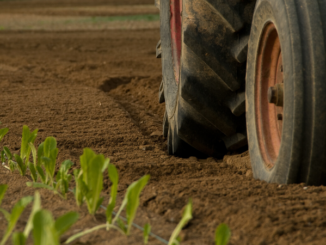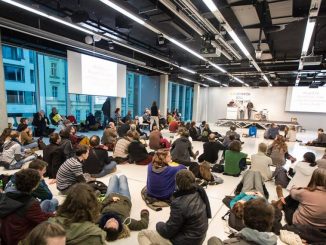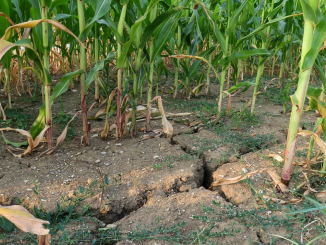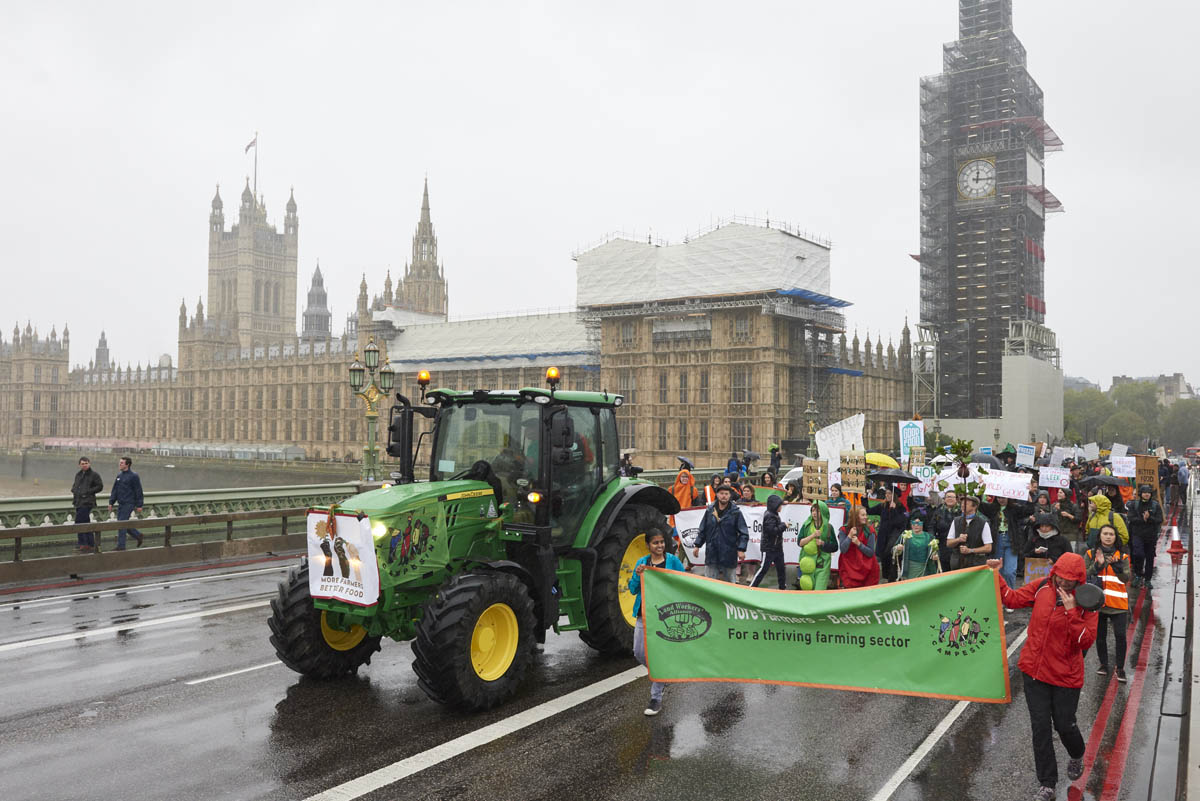
It has been a lively few weeks in UK foody circles. On the 14th October, several hundred farmers, activists and citizens gathered in the bleak autumnal drizzle in London’s Parliament Square to call for Good Food and Good Farming. With immanent departure from the EU, the UK agriculture doing the rounds in Parliament and World Food Day on 16th October, there has never been a more apt or urgent time to make the voice of civil society heard.
“The UK agriculture bill will determine the future of our food system for the next 50 years or more,” said Jyoti Fernandes, Chair of the Landworkers Alliance and key organiser of the march. “We want a food system that support farmers to produce healthy, affordable food for everyone, using methods that are kind to animals and the Earth and support independent farmers.”
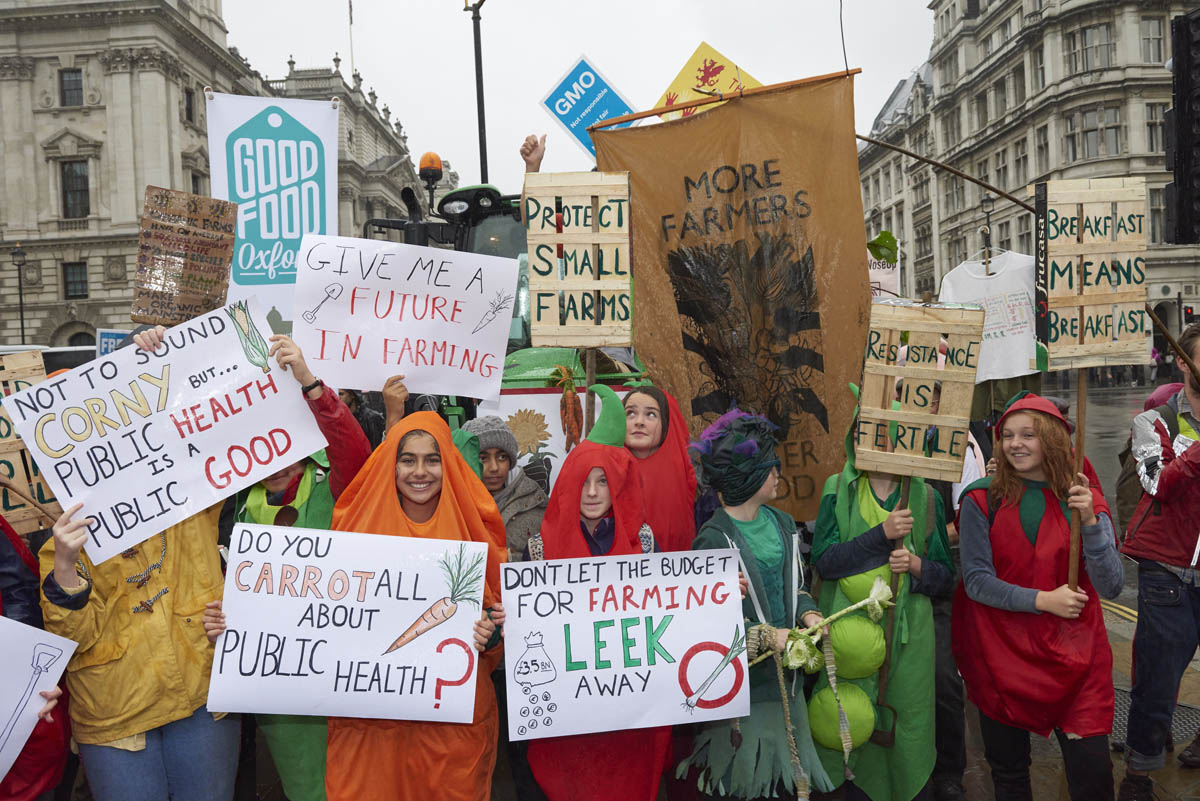
The march was coordinated by the Landworkers Alliance, the Gaia Foundation, Sustain and the Soil Association. For young farmer, Lorca Warner, the day had a particularly early start as he drove up his tractor from Dorset to front the march.
“We need to give young farmers a chance to feed our people, a chance to farm the land and to have a voice in the world of farming,” he said. “As large corporation farming takes over, the chance for young people to be able to own and farm the land how we want is rapidly disappearing. We want to be able to produce good food and to care for our land and animals to get a standard that is good for everyone.”
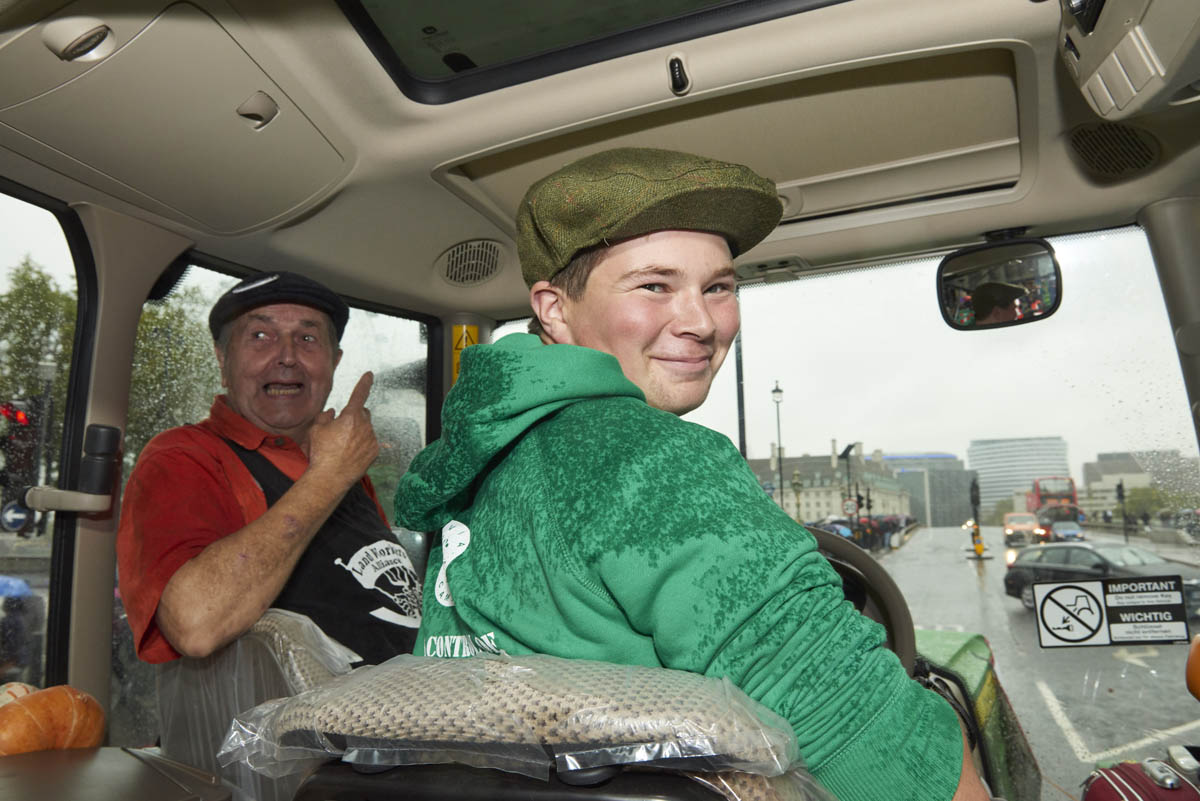
Whilst not yet quite at the 33,000 participants of last year’s Wir Haben es Satt demonstration in Berlin, organisers are setting their sites on ever bigger marches in the years to com. “We have to begin somewhere” says Fernandes. The march was part of the European Good Food Good Farming campaign. There are currently 40 events in 15 different countries throughout the month of October calling for more socially and environmentally ambitious food and farming policy. These culminate in a concerted weekend of action on the 27th and 28th October and a letter to European ministers of agriculture in the run-up to the next CAP reform.
The march wound its way from parliament square over the Thames and down the Southbank to end in front of the Oxo Bargehouse. Here a bubbling disco soup awaited us in front of the Gaia Foundation’s We Feed the World exhibition. We spent the afternoon huddled around cups of tea with a talk by US activist Anna Lappe on the future of food and a meander through the exhibition rooms.
We Feed the World is the culmination of a 3-year international photography exhibition. The idea is simple: let’s see and celebrate the small farmers who produce 70% of the food each day. This is to argue that industrial agriculture is not needed to nourish our global population.The walls of the Bargehouse are lined with over 400 images, taken by 48 photographers in 50 farming communities around the world.
“From ice covered Northern Sweden to the depths of the Amazon jungle, these iconic images tell the diverse and inspiring stories of the men, women and families that supply the majority of the world’s food,” says Francesca Price, project director. “In doing so, the project seeks to replace the image of the poor, struggling farmer with a truer, more resilient picture that both highlights the political complexities yet simple solutions that are available to us in addressing some of the greatest challenges of our time. We want these images to empower people to support their local food system and protect our planet.”
The images and corresponding stories certainly do have impact. Their strength lies in the emphasis on diversity: vast, chemical-intensive monocropping practices are far more delicate than they seem. Climate change is incredibly complex in terms of expected consequences on different regions around the world. Industrial agriculture threatens the resilience of the whole global food system since it argues we should rely on just a few crops and companies to meet all our nutritional needs. Food resilience lies in diversity; diversity of practice and diversity of crops. The 50 farming communities platformed at We Feed the World show the multitude of ways food can be grown such that are not so deeply threatening to the land, water and wildlife upon which we rely and for which we must care.
Cheryl Newman, curator of the exhibition said “photography is the language of our age and it has the ability to shift consciousness and effect change on a scale beyond any other form of communication…I hope people will leave the exhibition contemplating where their food comes from and the impact it has on the world around us.”
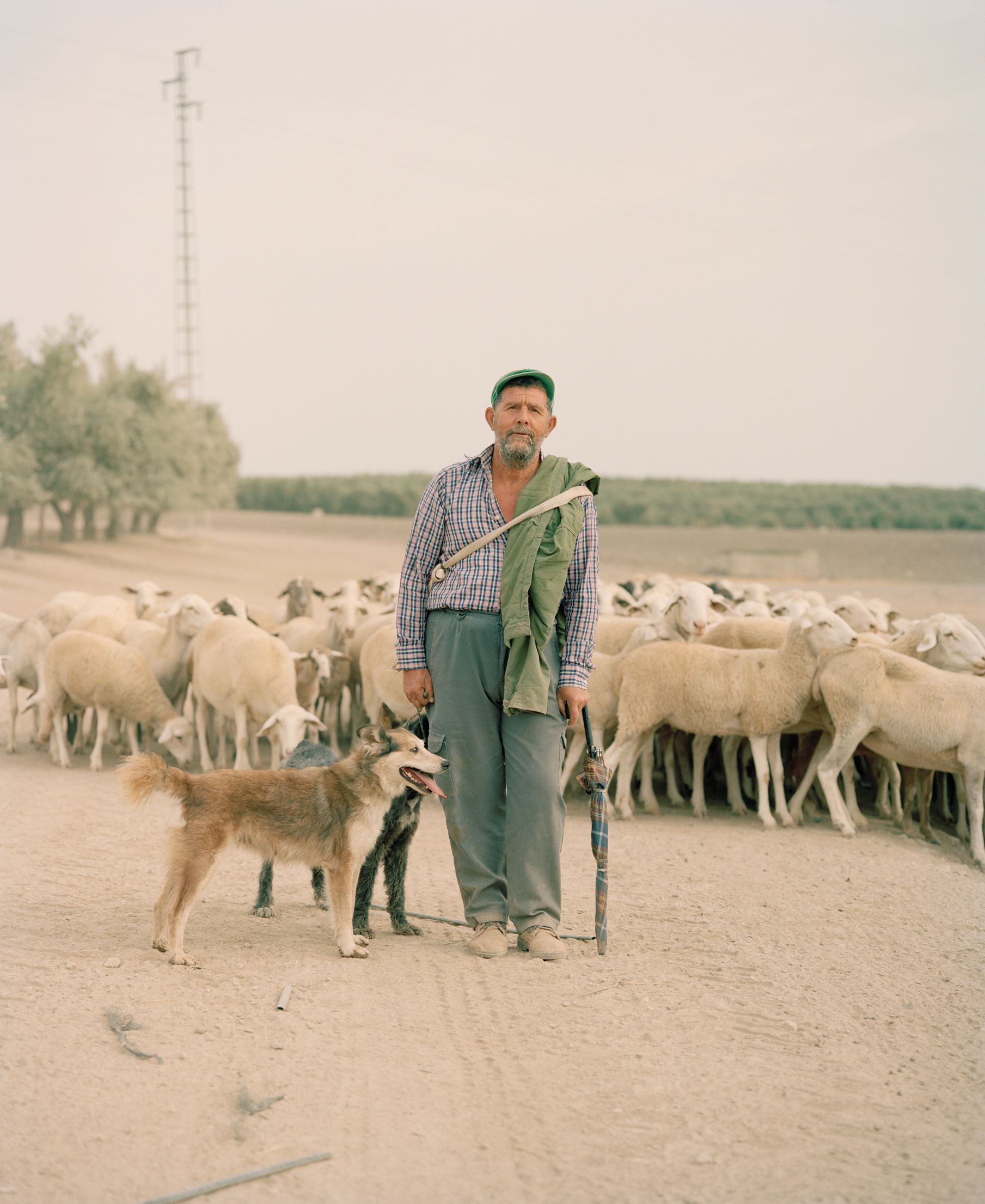
Two European stories give an impression of the kind of photographs, projects and people the exhibition is full of. Photographer Spencer Murphy spent some time in La Marinelda in Andalucia, Spain, to photograph a local community which has adopted a novel and exciting approach to land use and land use decision-making. Half of the land in Andalusia is owned by just 2% of families, Murphy reports. It has one of the highest concentrations of land ownership in Europe. Mass unemployment and food shortages in the 1970s, pushed the La Marinelda Community to take action. They took over the un(der)used land and began to grow food.
Sanchez Gordillo, the mayor, said “our aim was not to create profit, but jobs. We believe land should belong to the community that works it and not be in the dead hands of the nobility.” In the town cooperative everyone earns the same salary and all residents have free evening classes, free wifi and free sports facilities. Rent for a house puts you back just €15 a month. So a new attitude to and model of land use has transformed much more than just access to food. The towns motto “Otro Mundo es Posible” – Another World Is Possible – seems to capture it.
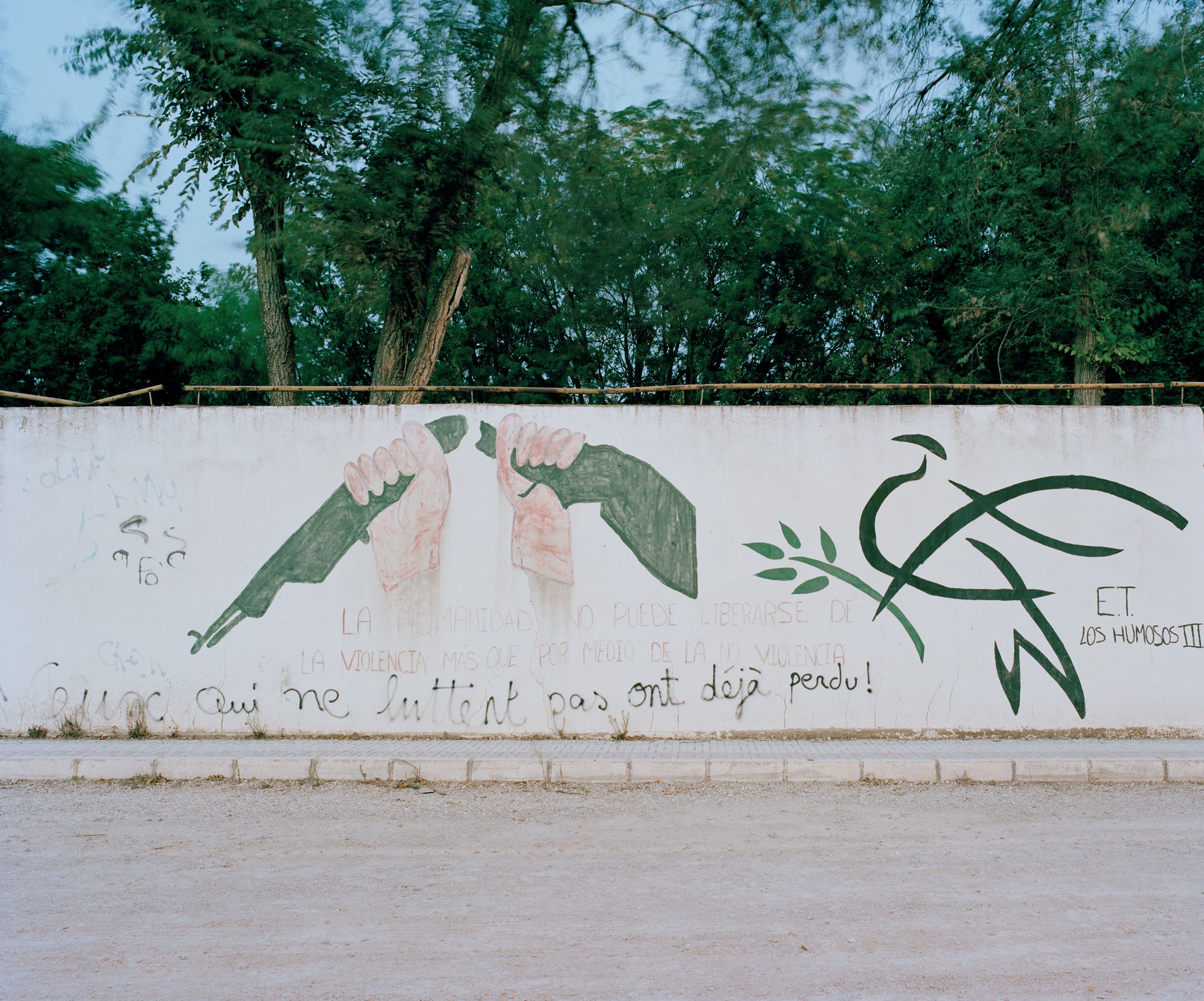
Another story is shared by photographer Tina Hillier who spent a week with Zuzana Pastorková in her garden, close to Bratislava, Slovakia. When Pastorková returned to the area her family lived in seven years ago, she said up a market garden and CSA scheme. Her family was initially not on board with the non-womanly job she had chosen but Pastorková now cultivates 40 different vegetable varieties, 10 different herbs and many fruits. This she parcels up to sixty families in Bratislava.
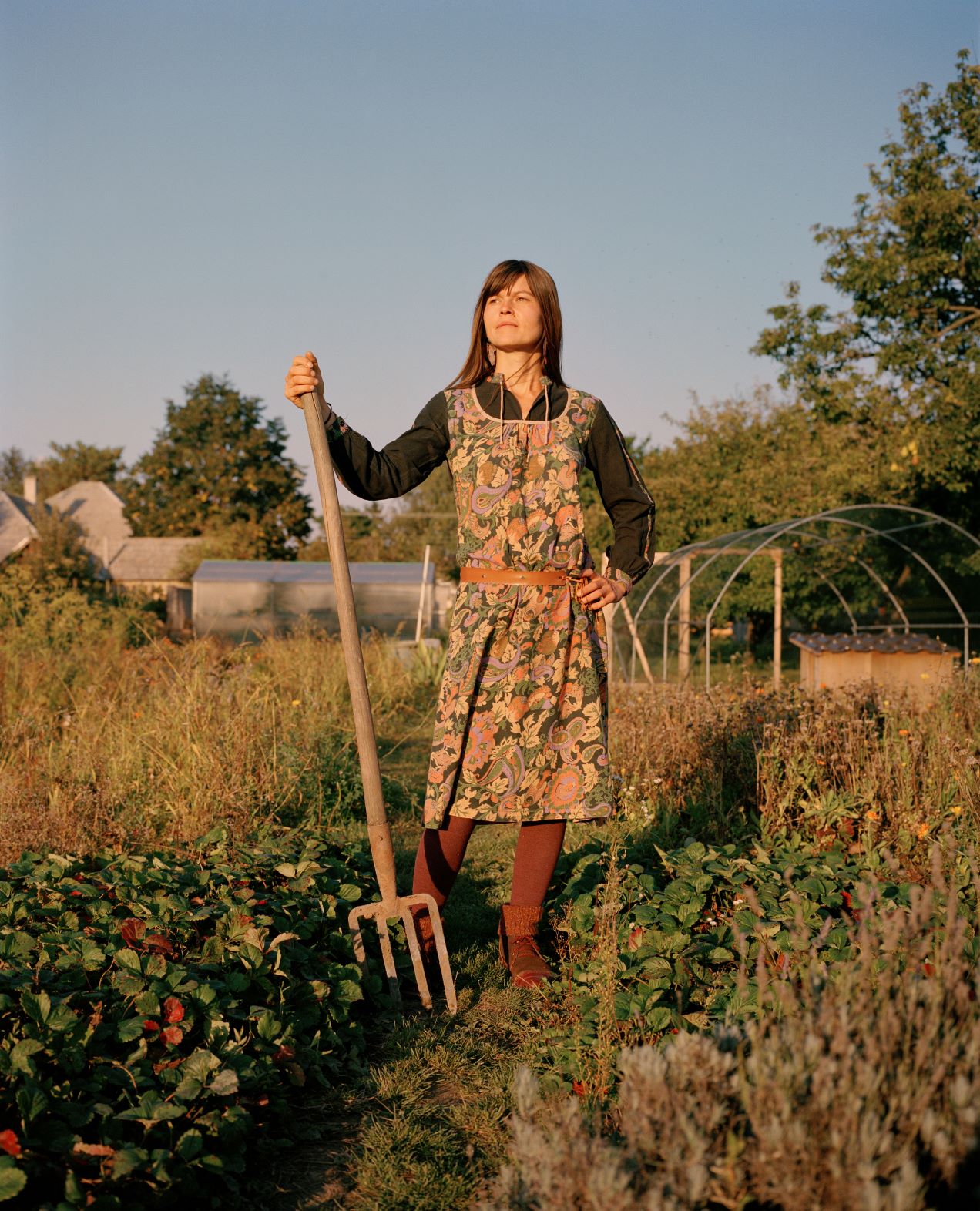
Most of the seed she grows with, she has inherited from village elders or from her ample travels around the world. “This is very different from industrial agriculture,” she says, “it’s about being in tune with nature and learning from it and being part of it. To understand what’s happening in nature you have to be quiet and observe and then the answers emerge on their one.”
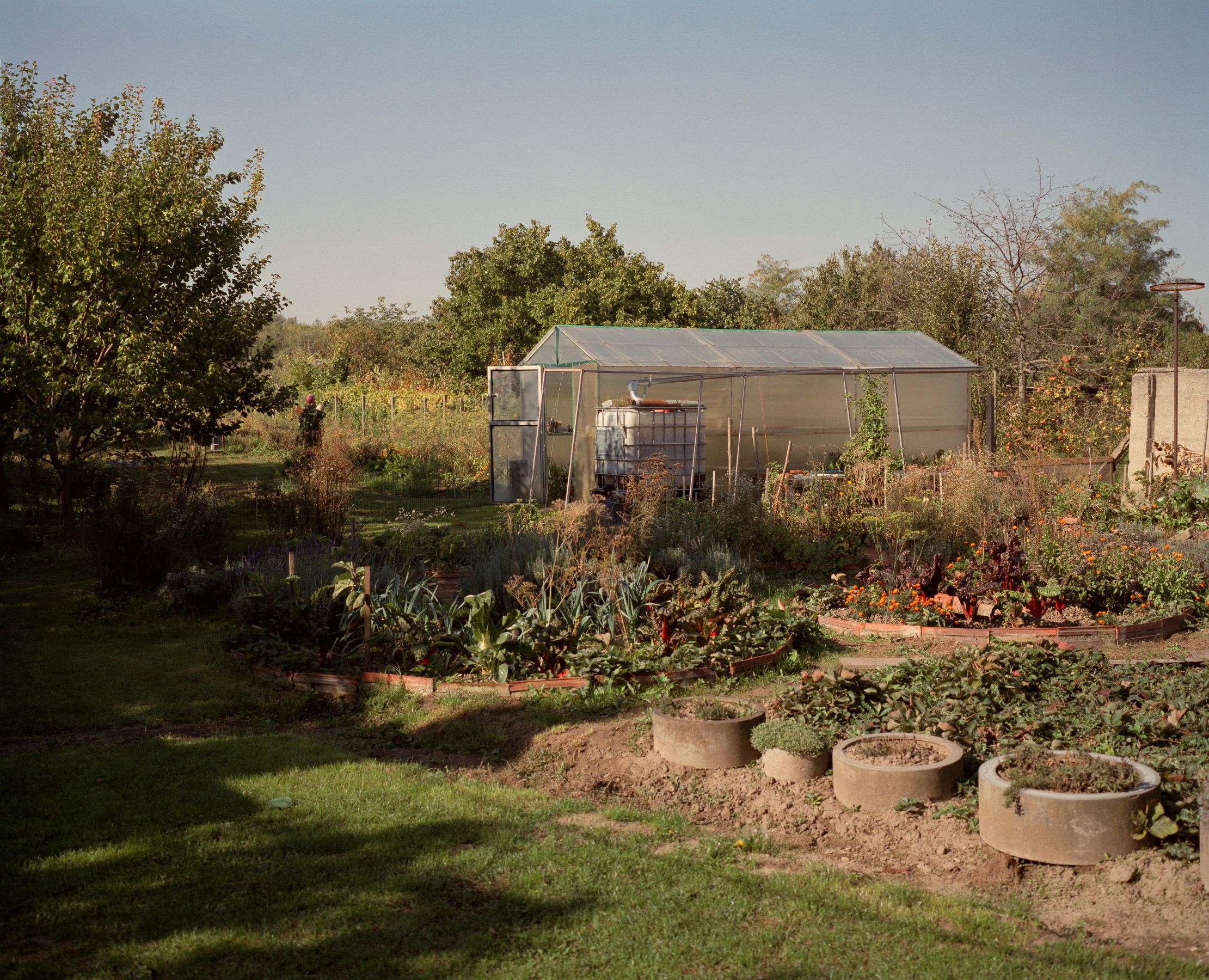
You leave the exhibition encouraged to tip your hat to the tireless growers each time you buy or eat food. You also leave heartened at the scale of creativity, hard-work and commitment of a global movement against industrial agriculture. In the same week as the publishing of the IPCC report, stories of positive change are needed. Disaster-narratives will get us only so far. Stories of other ways of living and producing food which are kinder to land and the animals on it as well as healthier to us are a needed, hopeful tonic to avoid despair-induced apathy.
“We Feed the World has been a brilliant opportunity to reach out globally to a new audience… It has brought together farming communities, the arts world, food and environmental organisations and ethical businesses,” said Price, “I am very grateful to everyone that has got behind the project and delighted at the success it has had on a global scale. With the help of our partners, we are now looking to produce a book and tour the whole exhibition to Europe, Africa and the United States.”
The exhibition closes on 21st October is accompanied by a packed 10-day programme of talks, films, workshops and food. Details can be found here.




